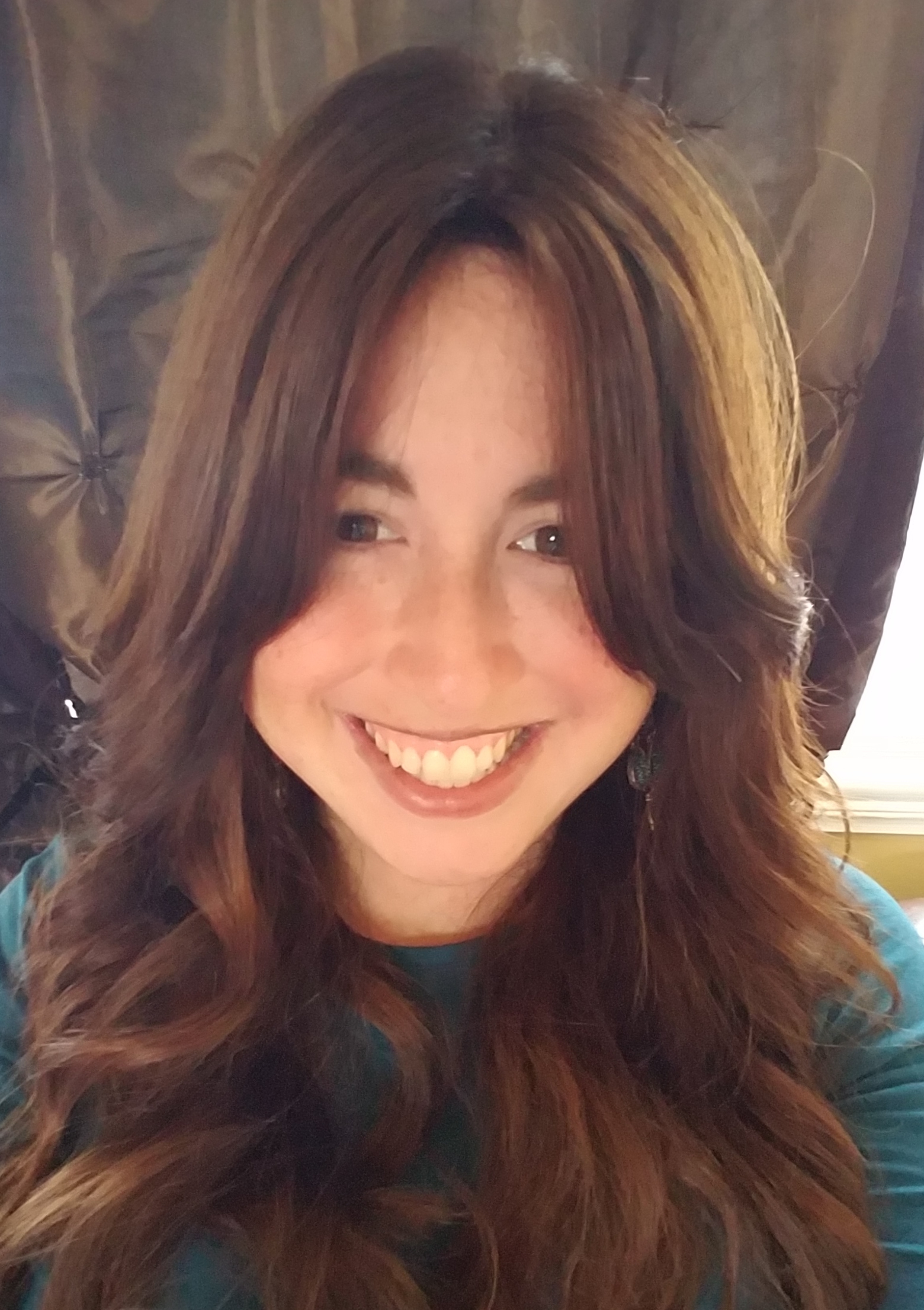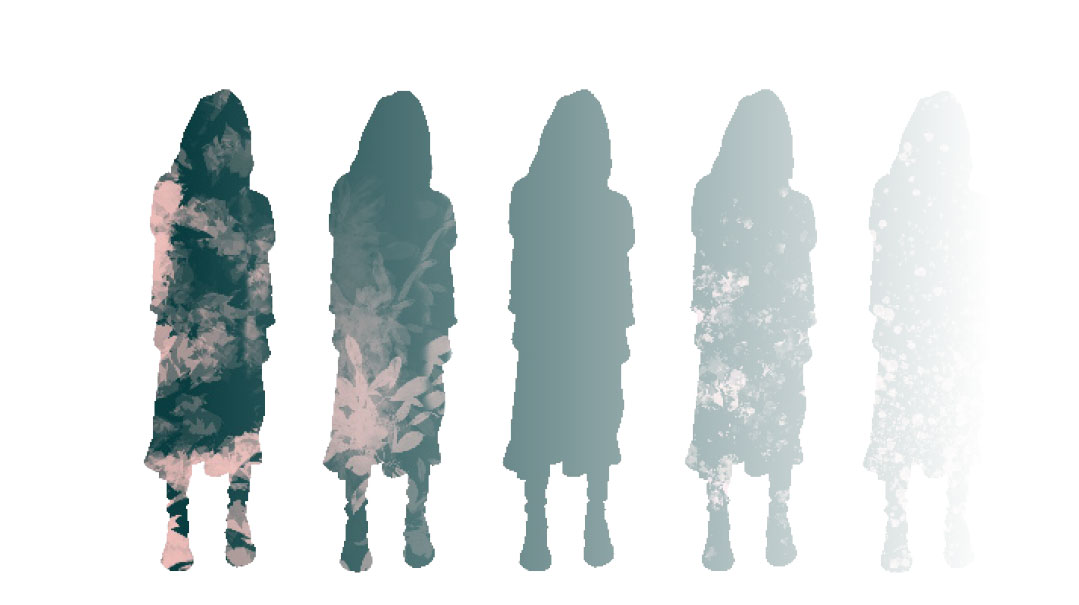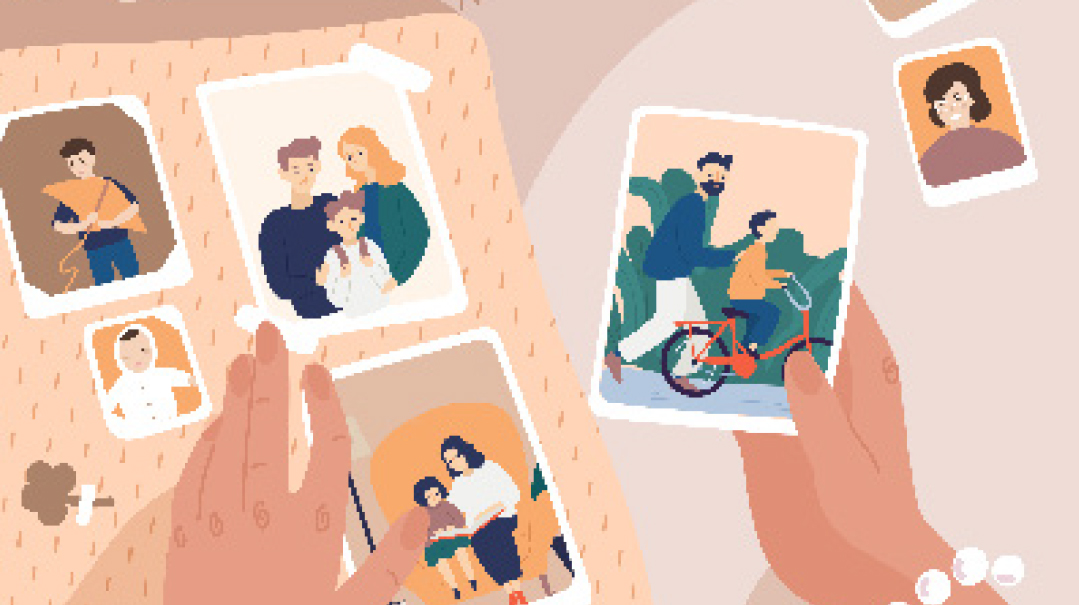The Pain of Parting

When you don’t tell people, they are oblivious to how deeply you are suffering

Iwill never know what I was doing that moment when your hearts started beating. And I will also never know what I was doing the moment that those same hearts stopped.
Life is comprised of the stories we tell ourselves, and wow, do I have a story for you. My identical twin babies, riding on the wings of Hashem’s brachos, and all the tefillos and mitzvos that were being done in your zechus.
Identical twin girls! I could envision you sleeping together in a single crib, cuddling up against each other. I could picture you, one in each giant arm of your off-the-growth-charts three-year-old brother, while he beamed for the camera. Your older sisters would spoil you. Our eldest, our ben bechor, would be the hero you’d look up to, and at his bar mitzvah a few months after you were born, you’d lie in your double stroller gurgling while he read from the Torah. As you grew up, you’d dress in matching outfits and whisper to each other while you giggled late into the night.
Now I must tell myself a different story, a story that will get me through the heartache and pain of never seeing any of those moments occur anywhere but my mind’s eye. I must tell myself a story that will make sense of how this could possibly happen in the second trimester when we naively thought we were in the clear. A story of how we will now move forward with a different reality for our year ahead, and for the rest of our lives.
Miscarriage is a visceral pain not often spoke about, which in some ways makes it all the more painful. When you don’t tell people, they are oblivious to how deeply you are suffering; they stop you in the grocery aisle to joke about something, or shoot the breeze, or ask you about something incongruous. They smile at you and can’t understand why your usual cheeriness doesn’t match theirs in return. It’s like you have a personal-yet-invisible-rain cloud over your head that makes everyone else puzzle over the fact that you are the only one drenched on an otherwise sunny day.
There’s so much you can’t know about someone as they go about the mundane necessities of life, as they stand next to you searching for the unblemished bananas, and stock up on sale items. But know that almost everyone you encounter is fighting their own battles.
The pink line barely showed on the pregnancy test, and I remember looking at it from various angles just to be sure. That same murky uncertainty followed me through the next month of the pregnancy.
My hormone levels weren’t in the right range for the doctors to be sure the pregnancy would be viable, and yet somehow the early stages of fetal development were proceeding wonderfully nonetheless. I was put on hormones, additional drugs, was told to be on the lookout, and yet everything felt just fine.
I went to an ultrasound when I was shocked to discover there were the signs of two babies, and yet one was developing more than the other, so they couldn’t tell me if I was having twins, or a singleton… or nothing.
A week later, I went to another ultrasound and was told one of the singletons had now split, and suddenly I was having identical twins, or triplets…. or nothing. The doctors just weren’t sure. We flew through the Yamim Noraim this year in a daze of confusion and extra-strength tefillos.
As we prepared for Succos, the drama went on. My doctors’ statements made me feel like a yo-yo: You are pregnant, you aren’t pregnant. You are having a miscarriage; no, you’re having triplets. Never mind, you are having twins, but it might be very dangerous if they share a sac. Never mind again, you are not having that very dangerous kind, but a different, less dangerous kind where they share a placenta.
Stop, go, stop, go. The emotional roller coaster was dizzying, and as we prepared the succah, I asked my husband for chizuk.
“We are in the Ananei Hakavod,” he told me gently, somehow always knowing what to say. “We’re living the message of Succos. Hashem tells us when to go and went to stop, and we take comfort in knowing we are under His sheltering embrace every minute.”
I tried to soak in the emunah messages of Succos, and after we packed the sechach and canvas away in our garage, the drama of the appointments began to wane as the babies grew healthily and steadily. In its place came the intensity of nausea and exhaustion that comes with twin pregnancies. It was rough, but every night, as I lay there battling the queasiness and fatigue, I bolstered myself by keeping my eyes on the prize: a set of precious identical twins.
When I finally reached the top of the first trimester mountain and entered the second trimester, I was elated by the vista. The doctors told us that we were doing great and the chance of miscarriage was now low. I went to a maternity shop and treated myself to new maternity Shabbos clothes. We told our children the exciting news, as well as a few friends.
One morning, before a routine doctor appointment, I felt my skirts had officially become too tight and tossed my old maternity clothes into the washing machine, anticipating wearing them the next day.
I’d already scheduled so many ultrasounds at the hospital to keep a close eye on the twins that the routine appointment I was about to go to seemed almost unnecessary, a formality I kind of wanted to skip. I felt like the babies were thriving and I wasn’t experiencing any worrisome symptoms, just a healthy daily dose of nausea and exhaustion from the strain of carrying two. As I began driving, my husband called to give me a brachah that the appointment should go well. I thanked him, but reminded him that this was really no big deal.
I happily cruised to the appointment, listening to a favorite CD and singing along, then chatted with my doctor about my pregnancy questions. I was prepared to leave when she said, “Let’s just go catch a quick peek at the heartbeats on the ultrasound machine.” It’s hard to use a doppler with twins because you don’t know which baby you’re externally hearing, so I knew the plan was to always do a quick peek, and I happily walked to the ultrasound room.
Strangely, the machine wasn’t working at first and the doctor rebooted it as we continued to chat. When it finally came back on, all chatting stopped. The doctor’s face transformed into a veiled look of concern. She kept poking at me from different angles, not explaining much, but not saying anything of concern either. She suddenly excused herself and told me she wanted to go find another doctor who was more proficient with the machine.
Looking back, it’s amazing how calm I felt, sure that nothing could go wrong now, after all the hurdles we’d navigated thus far unscathed.
But when the second doctor came in, he was much more blunt. There were no heartbeats, he said. And in that moment, I felt as if mine, too, had come to a stop.
I begged the doctor to look again and he acquiesced. The doctor pointed to the screen and gestured. “There’s the heart, you can see the four chambers, there’s just no movement in them.” I watched the screen unblinkingly, and had a sickening feeling that I knew this time was not nausea. Had it been better to look again and have him show me the chambers? Was it better to have the miracle of a perfectly and miraculously formed heart pointed out to me, only to see it lifeless without movement?
I arrived home to a washer full of soaking maternity clothes. I hastily dried them and got them out of sight, along with other reminders of my blossoming twin pregnancy from just hours before. This wasn’t my first miscarriage, but it was certainly the furthest along, and given the promise of twins, the hardest.
I battled through a bout with statistics that night. “But the odds of miscarriage in the second trimester were so low,” I shot out at my husband, through gales of tears. “The chromosome tests the week before came back normal. The ultrasounds were going so well… Why do we know people who have seven children and have told me they have never had a miscarriage, while we’ve miscarried four?”
My husband stopped me right there. “Beth, I’ll tell you the real statistics, the only ones you’ll ever need to know. You have a 100 percent chance of living the exact life that Hashem wants you to have. You will get 100 percent of the brachos that have been carved out for you, and zero percent of the pain that is not meant for you.
“Nothing bad will happen to you behind Hashem’s back. The ‘statistics’ are all masks and shadows. Hashem gets it 100 percent right, 100 percent of the time.”
Thinking back to Succos, I realized we were back in the Ananei Hakavod. Except this time we had been given the message to stop short — which felt more like a crash landing. I thought back to the succah; now it was the message of Shemini Atzeres that flooded me, the famous ma’amar Chazal brought down by Rashi about why on Shemini Atzeres we spend that extra day in Yom Tov. According to Chazal, Hashem is reluctant to give up that closeness with us and says, “Kasheh alai preidaschem — it is hard for me to part from you.” Going to the hospital the next day and parting with my twins was excruciating, and those words of Chazal rang in my head as I held my stomach and whispered those same words as a goodbye…
On the day of the procedure, so many little things did not go well. I woke up with a migraine headache and was already in pain before I even stepped into the hospital. The staff blindsided us with papers demanding immediate answers about what we wanted to do with the remains of the babies, which no one had prepared us for. The nurses were overworked and stiff, inserting one of the IVs in such a way that caused me tremendous pain and left me later with a bad bruise. My own doctor couldn’t work it into her schedule to do the surgery and sent someone else.
“Where is my besamim?” I asked my husband over and over, as little things didn’t go as planned, referring to the ma’amar Chazal about how Hashem put Yosef in a spice carrier’s caravan as he went down to Mizraim so at least he’d have a sweet smell to accompany him on his harrowing journey.
“This is so hard as it is, why couldn’t all the smaller parts go right, why can’t I have something calming and sweet to get me through this journey?”
As the day went by, my husband was a rock of support who got me through each moment, with a kind word and smile, advocating for my every need and anticipating things before I needed them.
I turned to him as my body convulsed from the “spinal shakes” after anesthesia. I was in a curtained recovery area that didn’t allow for visitors, but he convinced his way through anyway, suiting up in ridiculous-looking head-to-toe scrubs. I realized it right then.
“You are my besamim,” I said through a torrent of tears. “You have always been my besamim.”
I held on to that thought as we muddled through the rest of that heartrending day together and returned home to our other besamim — our existing children — kissing them and holding them tight as we all cried together, inhaling their beautiful scents of life.
Day by day, I find comfort in small moments that are ultimately building up my spiritual resilience and resolve.
The memory of my brother in Israel telling me he wanted to hop on a plane right then to be with me as I battled through this, and knowing he really would drop everything in his busy life as a rosh kollel and father of six to come help me through pain. The frequent phone calls from him, each time with a devar Torah or tale of chizuk to get me through the next few hours.
The friend with whom I was supposed to have coffee after that fateful “no big deal” appointment, whom I texted right after I got the horrible news, jumped in her car and told me to tell her exactly where the appointment was so she could come be with me.
The friend who texted me every day with offers to come over to give me a hug, bring me a hot chocolate, bring dinner, did the best thing of all when I finally acquiesced — just sat and cried with me, telling me how much she felt my pain as her own.
The neighbor who shared with me that watching my journey had changed her own life, assured me that good things would still come out of this, even if I didn’t sense them at the moment.
I spread the chizuk, telling different people the news at different times, saving conversations for when I needed them the most, like an IV drip of support that sustained and nourished me.
The only comfort I take is that while I don’t know what I was doing when your hearts started and then stopped beating, while I don’t know where the “Ananei Hakavod” will start and stop our next life journey, I do know that at least you twins have each other. At least you are together.
When I dreamed of you, I dreamed of all the moments of closeness you would share in life, the special lifelong bond only twins can know. I pray you will still have moments of closeness in Gan Eden.
Tzeis’chem l’shalom, my loves. Kasheh alai preidaschem…
(Originally featured in Family First, Issue 674)
Oops! We could not locate your form.












